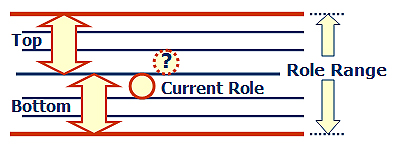“To heck with the technical skills,” Jena proclaimed. “I am just going to hire for attitude.”
“The skills required are easy enough to teach, and you have a good training program,” I agreed. “But how will you interview for attitude? Specifically, what attitude will you interview for?”
“Oh, that’s easy. I want someone with a sense of urgency. I am tired of hiring people who feel like they can take all day to produce a single unit when I need 15 units produced. I am tired of people who feel like we push them too hard. We work hard here. I want someone who likes to work hard.”
“I think I understand,” I nodded. “Just exactly what questions will you ask to find that out?”
Jena looked stumped and then smiled. “I have no idea.”
“Well, that’s a start. If you did have an idea, what question would you ask?”
Jena shook her head and chuckled. “I guess, I could ask them if they like to work hard?”
“And how do you think the candidate would respond?”
“Unless they are an idiot, I guess they would answer – yes. And if they were truly an idiot, they would not have made it to the interview. That means every candidate will answer – yes.”
“Then, is that a helpful question?” I probed. “Can you think of a better question? A more specific question? A question about something real? A question about a behavior that you can observe?”
“But, I am trying to hire for attitude. You can’t see attitude,” Jena protested.
“I know you cannot see attitude, but ask yourself this question. How does someone, who likes to work hard, behave? How does someone, with a sense of urgency, behave? Then interview for that behavior.”
“Someone who likes to work hard, shows up early,” Jena started. “And they work at a pace that gets the work done. They are aware of pace. They don’t stop every half hour for a smoke break. They keep working until the job is done. They don’t quit, they don’t leave a project half finished thinking someone will come along behind and complete their work.”
“Now we are getting somewhere. You cannot see attitude, but if you can connect attitude to specific behaviors, you can certainly ask questions about those specific behaviors. So, let’s hear some questions. First establish the project.”
Jena gathered her thoughts. “Tell me about a time when you worked on a project where the deadline was very important. What was the project? What was the purpose of the project? What was your role on the project team? What made the deadline so important? How did your team respond to make sure you met the deadline? Step me through the pace of the project? How did you know you were ahead of schedule or behind schedule? When you were behind schedule, what did you do? When you were ahead of schedule, what did you do? As you got to the end of the project, what planning did you do to button up the last stages of the project? Step me through that plan? How did you know you had completed all the final details on the project? How was the project reviewed, by your manager, or the client? Step me through the review process?”
Jena stopped. “Okay, I like those questions,” she said.
_____
Amazon has inched up the price of Hiring Talent, but it is still on promotion. Get it now, before it goes back to list price.
